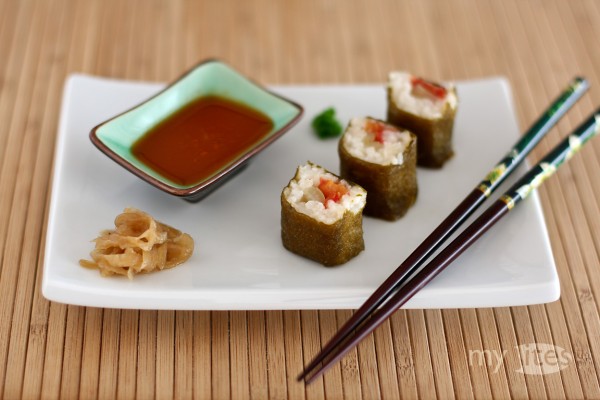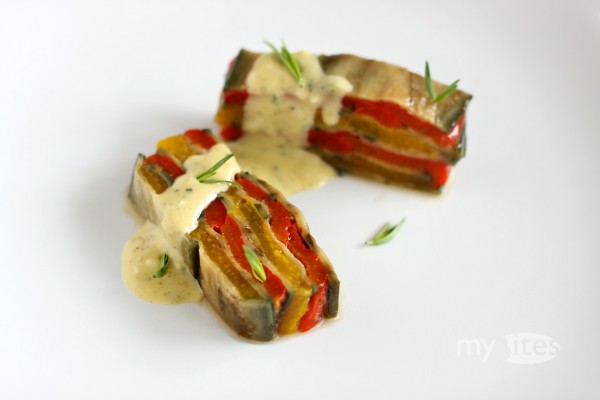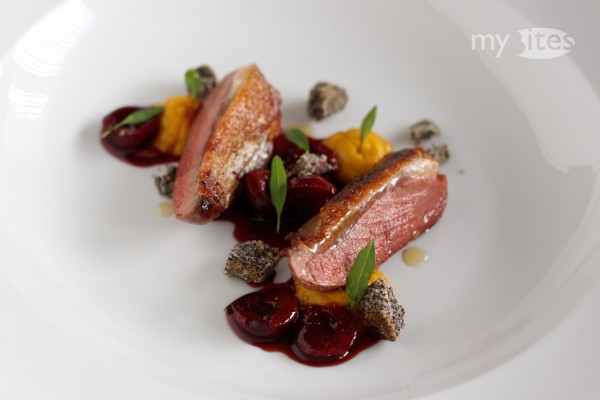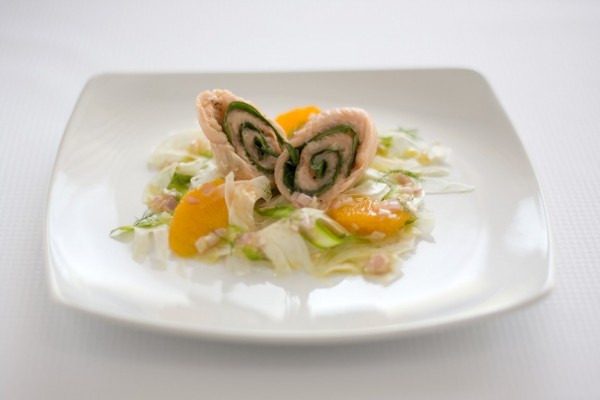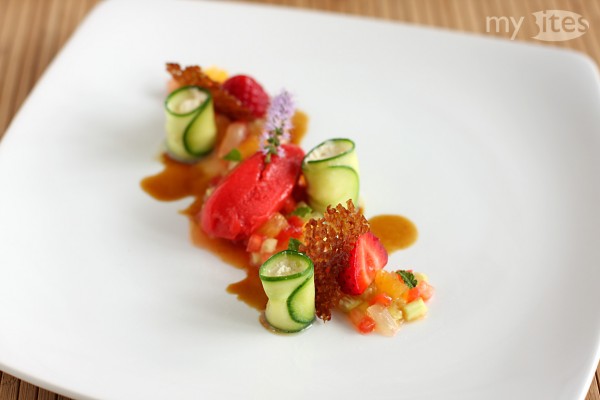Next to experimenting with new flavor pairings and techniques, thinking about classic dishes and transforming them into new and more interesting forms is my biggest passion in cooking. Sometimes I start meditating about a classic dish, its ingredients, the involved techniques and the possibilities behind them. The ideas pop up and evolve during this creative process. Some other times I keep thinking and enhancing distinct single ideas, which I quite suddenly assemble into a new dish or a reinterpretation of a classic. This time I combined several ideas and applied it to a Hungarian classic: the lecho (orignally: lecsó). Traditionally lecsó is a mix of onions, long bell peppers and onions simmered similarly to a stew and served either immediately or stored in glasses for the forthcoming winter. Sometimes lecsó is enhanced with garlic, Hungarian sausage (kolbász), sweet paprika powder or lard. Lecsó is usually served mixed with rice or eggs, or it can be eaten simply with a few slices of bread. I prefer the version with rice and – very nontraditionally – a lot of cinnamon, which works especially well with chorizo-like sausages.
You might ask now: why to serve a lecsó in form of a sushi? Well, I figured out how to make endless variations of nori algae sheet substitutes (the sheets you wrap your sushi into), how the texture of tomatoes and peppers can resemble soft fish meat and how to replace the wasabi by another traditional Hungarian ingredient. With the combination of the ideas described below, serving a sushi with lecsó flavor surely will make sense to you as well. So read on below for the birth story of the Lechosushi.
